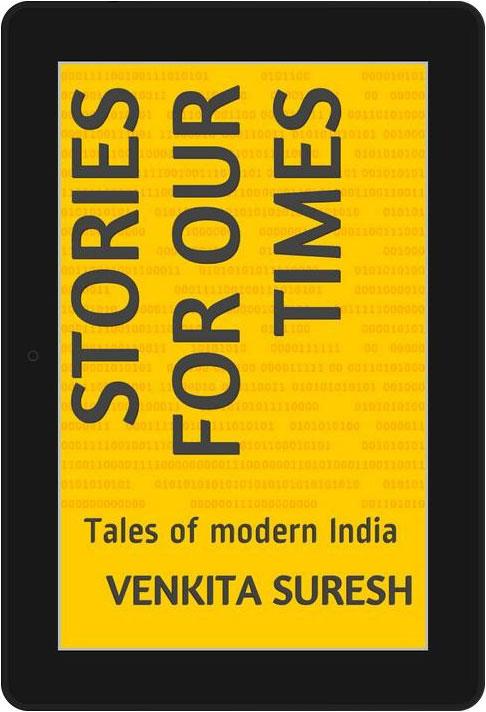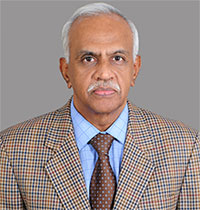Dr Suresh Venkita, our Group Medical Director, a senior cardiologist and an avid writer, has yet again shared this lovely story from his desk.
Learning from Leonie
Leonie was a beautiful nineteen- year- old girl and a very young mother who died in a tiny village tucked away in the vast hinterland of Haiti where the 50 year old hospital I worked also stood. Unfortunately Haiti has always had the highest maternal mortality rate in the Americas (1).

Her life was short and sad. She had lost her parents when very young. She was the eldest and brought up and cared for her two sisters, with the help of relatives and neighbors. She had a loyal boyfriend and was very grateful to her god for letting her happily hold her baby in her arms before her heart gave out. She taught me all the lessons I needed to learn about Peripartum Cardiomyopathy (PPCM) before she left her troubled world.
She was my patient and PPCM was the disease we both confronted together. Eventually when her heart gave out mine sank too, that was no age to die, no disease had a right to blight and snuff out a young girl’s life like that.
Snuff out a young wife and mother’s heart like that.
Leonie stumbled into my clinic one very warm, sultry, windless afternoon, with a new born baby in arms, and her very boyish partner in tow. I saw beads of sweat on her forehead; she was dusky and listless.
I asked in her patois- ‘how are you’? That was how it began, like all conversations with patients.
‘I am not too bad’ she said.
That is what they all say in the Haitian country side, realistic, but optimistic. Her disease and death certainly had its links both to the troubled ecology and economy of her country as well as to its disturbed and dysfunctional families. The country taught me learn a lesson never to be forgotten, that poverty was the root cause of most diseases, and that the biggest risk factor for early death was none other than poverty.
‘I am tired, breathless, and puffy’, she said. “and my heart is racing’, she added.
The teaching of Sir William Osler jumped to my mind “Listen to your patient, she is telling you the diagnosis”
She was telling me that she had heart failure.
Years earlier I was a research fellow on a heart failure study, peering at ECGs, Xrays and Echoes to diagnose heart failure, and I wasn’t always sure. But I knew Leonie had her diagnosis right.
I could see that she was a proud girl. Pride, and great dignity in the face of poverty, were the hall marks of Leonie and her people, and that kept them alive. I should have the humility to accept her diagnosis, and do something about it.
She lived in a country where the village markets made up most of its economy. Its engine was the woman who toiled up in the hills to persuade her reluctant and illnourished land to yield some produce, carried it and sold them at the market.
In Haiti you acquire an enormous respect for its women. They are proud people who hold their heads high and backs straight.
And that was what made Peripartum Cardiomyopathy a dagger to the heart.
Back to Leonie, her four symptoms were classical and diagnostic.
Her present history went as follows: “As my pregnancy advanced, I began to feel sick, and became bad towards the end, and got worse after delivery. I was delivered at home by my neighbors, I was hoping to get better after that and take care of my baby but now this, I can’t do anything, even holding my child and breast feeding her makes me breathless”.
She was reciting the natural history of PPCM.
She had no past medical history. Ever since childhood, though hungry all the time, she could run up the hills of that land where behind mountains lay more mountains (ancient Haitian proverb illustrates just that: ‘Deye mon, gaye mon’). Life was like that, an unending struggle up hill, one after another. If you could not climb you had no future. If you could not climb, you were as good as dead. Food was grown up in those hills, and sold in the plains. PPCM neither let you climb nor descend; it nailed you to the spot, killing you softly.
Her personal and family history was not only her story; it was the story of every little girl ‘born in the province’. A faceless father, migrant, then gone forever; a mother who was always exhausted and got extinguished in her youth leaving behind her children; and a distraught grandmother who despaired over the responsibility of bringing up three girls from different fathers. But neighbors were invariably helpful, the folks of the country side believed that you must share your food, as you may have none tomorrow but your neighbor will share his. It was a dysfunctional rural history that never assured the three basic necessities of life; food, clothing and shelter, but added to it’s uncertainly and insecurity.
Leonie grew up all too quickly to shoulder the responsibility of caring for her sisters, who also grew up to be as beautiful as herself. Leonie stepped out of school to send her sisters instead so that they could speak that elegant colonial language while she herself kept to the patois. She kept them out of trouble but she and her boyfriend stumbled into an unexpected pregnancy. Unfortunately the risk factors and the ill known etiology of PPCM (malnutrition? toxins? viral? stress?) came to hover over her pregnancy, darkening and contracting the horizon of her young life.
Clinical examination yielded the tell-tale signs: orthopnea, raised jugular venous pressure, edema, ascites, tender epatomegaly, left and downward shift of the apical impulse, tachycardia, gallop rhythm, the pan systolic murmur of mitral regurgitation and basal crackles.
The diagnosis was quick and definitive- congestive cardiac failure. X-ray indicated cardiomegaly, pulmonary congestion and pleural effusion.
I was proud of my laptop echo machine, one of the few in the country, but sad to see her dilated, feebly contracting left ventricle with an ejection fraction of 25%.
I sat beside Leonie to discuss her diagnosis and prognosis. Even her conjunctiva was edematous, so I could not tell whether there were tears, but I am sure I saw them there, not for herself, she was too proud for that, but for her baby, her sisters and her young and forlorn partner who was still a boy trying to grow up but sitting beside her, holding the child in his lap. I was happy for her that she was lucky to have her man beside her, a privilege many women in that part of the world never get to have.
She entered the hospital’s PPCM project and received the treatment as per protocol- diuretics, ACE Inhibitors and cardio selective beta blockers.
We talked most days. She spoke about her child, how she will take care of her and watch her grow, and keep her safe. She talked about her life with the boyfriend and hoped he would grow into a responsible adult, a husband and a father. She wanted to see her sisters finish college and find work. And she wondered whether she would, or could, have another child. I could only respond to the last thought; if I could get her ejection fraction up to 60% and keep it there, I may consider the pros and cons of her wish to bear another child.
None of that would be easy, PPCM loomed dark and forbidding over all those dreams.
My daughter counseled her sisters, advising to keep unwanted pregnancies and sexually transmitted infections at bay. They were educated and articulate, smart and bright. Leonie listened and was proud to hear them converse fluently in a language handed down by the colonial masters.
I was happy with the response of her heart failure to treatment but concerned about her poorly contracting Left Ventricle. I suspected she will form a thrombus and stabilized her on anticoagulants before I discharged her.
She was to return in two weeks for a review. When I did not see her for four weeks I grew uneasy and that disquiet increased as more weeks passed.
Then came a late night call from the hospital. I did not expect to see her, but there she was, crumpled on a bed in a dark corner. Her bright and hopeful eyes had lost their shine and the right hand and leg were limp. From the bottomless hollow of her eyes, which were very slowly welling up with tears I knew that she had lost her speech and would converse no more.
It was a familiar story of medications that ran out, and missing out on the anticoagulants, which led to a thrombus in the heart and an embolic stroke.
Leonie quietly gave up on life and returned to her village to die a few days later, sadly and silently.
I continued to work on PPCM, seeing a Leonie in every young mother who walked in through the door with the disease.
For me, she lived on. So I continued the conversation, each time- ‘How are you this morning?”
Dedication
This article is dedicated to Dr. James Fett and Therese Sprunger, whose dedication and support to PPCM research in Haiti make many lives better, safer, longer and meaningful.
References
1. Huber B, Haiti’s push for safe motherhood.The Lancet, Volume 386,
No. 9994, p641–642, 15 August 2015.
To access the Kindle or Paperback version fo Dr. Suresh’s books, please go to www.amazon.com, books and search by name “Venkita Suresh”.

Article by Dr. Venkita. S. Suresh
Group Medical Director
Kauvery Hospital

